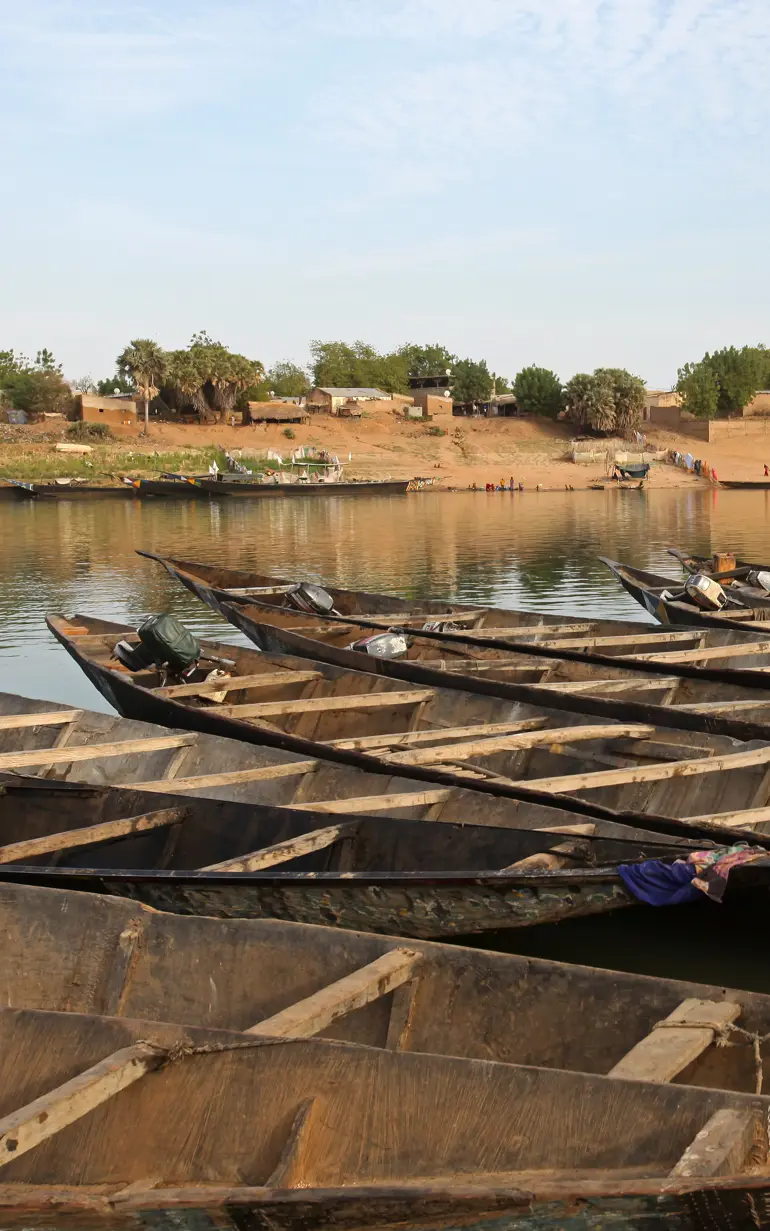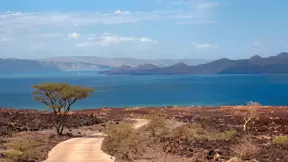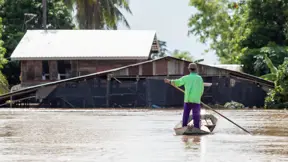
Navigating water resources challenges in the Senegal River Basin
Integrated hydrological and hydraulic studies enhance water management and resilience to climate change
The Senegal River basin, located in West Africa, spans four countries and covers 1.6% of the continent. The river basin faces significant challenges due to uncontrolled tributaries causing droughts, floods and erosion, directly impacting the lives of local communities and the health of the environment. Additionally, existing water management systems, designed using historical climate data, may not adequately address the increasing frequency and severity of climate events. By utilising DHI’s integrated hydrological and hydraulic modelling, the Organisation for the Development of the Senegal River (OMVS) has adopted a modern approach to water resource management. This enables more accurate understanding of floods and droughts, helping local communities adapt to future uncertainties and safeguard their livelihoods.
Challenge
Uncontrolled tributaries are streams or rivers flowing into a main river without regulation or management. Influenced by natural factors like rainfall and topography, their flow can fluctuate due to weather events. Human activities such as deforestation and agriculture can further impact their flow and health. This can lead to challenges like flooding, erosion and water quality issues, making effective monitoring and management essential for the river system's overall health.
In the Senegal River basin, these challenges affect both residents and the environment. For local communities, these issues have led to water scarcity, affecting agriculture and livelihoods while limiting access to clean water, exacerbating food insecurity and poverty. Environmentally, these challenges result in habitat degradation, loss of biodiversity and decreased soil fertility, highlighting the urgent need for integrated water resources management approaches to address the impacts on both human and ecological communities.
Solution
For nearly two decades, DHI and OMVS have built a strong partnership that has resulted in an enhanced understanding of the hydrological dynamics in the Senegal River Basin.
For this project, DHI conducted hydrological and hydraulic studies of the Senegal River's uncontrolled tributaries using DHI’s Global Hydrological Model (GHM), focusing on evaluating water resources, understanding the dynamics of water flow and erosion phenomena, and identifying interventions for sustainable management. Using DHI’s GHM, runoff has been computed for the entire river basin to assess the water availability in key uncontrolled tributaries.
The solution involved gathering data on geographic, climatic and hydrometric conditions, creating thematic maps to illustrate the basin's characteristics and using hydrological modelling to simulate water movement and distribution. The aim was to establish a foundation for informed decision-making that addresses both the immediate and long-term needs of the basin's ecosystems and communities while considering the impacts of climate change and human activities.
Results
The solution has established a basin-wide hydrological and hydraulic model for the Senegal River's basin. OMVS can now improve strategic planning and better anticipate floods and droughts, enabling targeted prioritisation of interventions in the uncontrolled tributaries of the basin. The enhanced water management aims to improve water availability, reduce flood and erosion risks, and increase agricultural productivity to the benefit of the quality of life of the local community. Additionally, this approach has facilitated the stabilisation and restoration of natural habitats, benefitting aquatic ecosystems.
Client:
The Organisation for the Development of the Senegal River (OMVS)
Location:
Africa
Related SDG(s):
SDG 6: Ensure availability and sustainable management of water and sanitation for all
SDG 13: Take urgent action to combat climate change and its impacts
SDG 15: Protect, restore and promote sustainable use of terrestrial ecosystems, sustainably manage forests, combat desertification, and halt and reverse land degradation and halt biodiversity loss
Technology:
'This project is significant for its transformative impact on the management and sustainability of the Senegal River's ecosystem and its communities. By addressing complex environmental challenges through strategic interventions enabled by DHI’s advanced hydrological modelling, we have created a strong framework for integrated water resource management. This initiative enhances water security, ecosystem health and community resilience in the face of climate variability, benefitting both people and the environment.'
Mr Kandas CONDE
Head of the Water Resources Management and Risk Prevention Division
OMVS Regional Infrastructure Department
About our client
The Organisation for the Development of the Senegal River (OMVS) is an intergovernmental organisation providing a robust legal framework for cooperation between Guinea, Mali, Mauritania and Senegal. It aims to manage the Senegal River's resources collectively for sustainable development. The organisation focuses on optimising water use for agriculture, generating hydroelectric power and ensuring environmental protection. It also addresses challenges such as water scarcity, managing flood risks and promoting regional economic integration through infrastructure development and resource management projects, enhancing the livelihoods and resilience of the river basin's communities.
You may also like
How can we help?
With our global network of offices, we make sure you get the right answers to your local needs. Tell us about your water challenges and we will get back to you.


